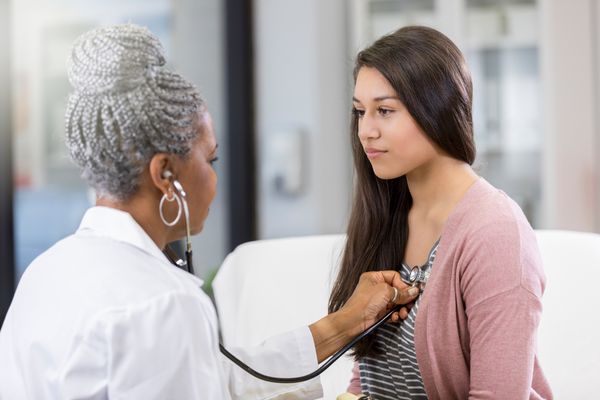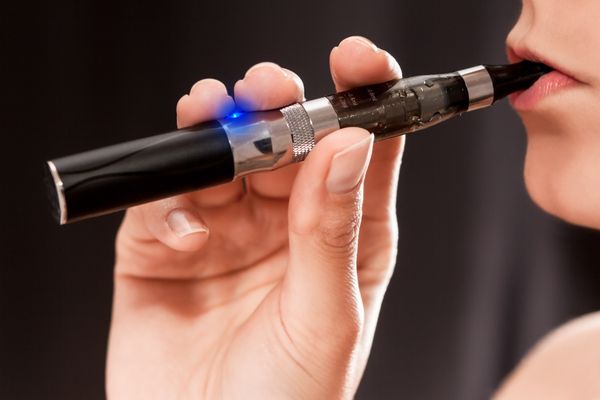As if puberty isn't confusing enough, this is also the time in their lives that most teenagers start dating. With dating comes new concerns about emotional and sexual health.
Depending on your teen's age, “dating” may mean attending a school dance or party with a date, going out for dinner or to the movies, or (for younger teens) avoiding the person they are dating as much as possible.
Some teenage girls are romantically interested in boys, some are romantically interested in girls, and some are romantically interested in both. If your teen's sexual orientation is not toward the opposite sex, he or she may feel sad, worried or different. Talking to a health care professional about these and other physical and emotional concerns surrounding dating can help.
Is your teen ready to date?
If your teen is are asked on a date, encourage her to ask herself these questions to help make sure it's something she wants to do:
- Do you trust the person?
- Do you have common friends and/or interests?
- Do you feel pressure from this person in any way to become sexually intimate or to do something you feel is wrong?
If your teen dates one person for a while, she might feel pressured to become sexually intimate. Friends will be curious and question whether she and her dating partner have "done it." This is a good time for you as a parent to start talking to your teen about making the right choices surrounding dating and sex. Reassure her that just because she's been dating the same person for a while does not mean she has to have sex, especially if she's not ready.
Besides the possible physical outcomes—such as getting pregnant or becoming infected with an STD—remind your teen that there are emotional factors connected to sex. She could feel regret, anger, shame or guilt afterward. Most parents, health care professionals and others advise teens to wait until they are adults to have sex. People are far more able to handle the personal and health responsibilities that go along with having sex in their adult years. Encourage your teen to consider the following issues before she has sex:
- If you don't want to get pregnant, are you prepared to use contraception?
- What if you became pregnant? What would you do?
- What if you contracted HIV and developed AIDS?
- What if you contracted another STD and got sick or passed it on to another person? How would you feel?
- What if you had sex with someone before you were really ready and it turned out to be an unhappy experience?
- Can you consider saying "no" to your partner if you're not ready to have sex and not feel pressured by friends who ask you about your sexual experiences?
Remind your teen that you, her parents, a health care professional or any adult in whom she can confide can help her think through these issues before she finds herself in a situation where she might feel pressured to have sex before she's ready.
A Tough Decision
Is your teen ready for sex? Deciding when to engage or not engage in sexual relations is one of the most important decisions a person, of any age, can make. Some girls your teen knows may already be sexually active. About 40 percent of all high school students are having sex, according to a 2017 study by the U.S. Centers for Disease Control and Prevention (CDC). Good news is, this is down from 47.8 percent in 2007.
Your teen's decision regarding whether to have sex is one that could affect the rest of her life, so it shouldn't be taken lightly. Talk to her about taking this decision seriously and remind her of the risks, from getting pregnant to becoming infected with a sexually transmitted infection or disease. Not to mention the other emotional and physical risks that can come into play when teenagers have sex.
If know you your teen is sexually active, the best way she can prevent getting an STD is by using a latex condom. This is true for oral, vaginal and anal sex. Lesbian couples who practice oral sex can use a dental dam to prevent STDs. The use of latex condoms during vaginal sex also prevents pregnancy. There are also other forms of birth control that can help prevent your teen from getting pregnant. No method of contraception, however, is 100 percent safe. The only foolproof way to avoid getting pregnant or contracting an STD is not to have sex.
Sexually Transmitted Diseases (STDs)
Sexually transmitted diseases (STDs) are infections that spread through sexual intercourse or genital contact. Your teen can contract an STD from having oral, vaginal and/or anal sex with an infected partner. The CDC reports that although young people ages 15 to 24 make up just a quarter of the sexually active population, they account for half of the 20 million new STD cases that happen in the United States each year. So, it goes without saying that the teen years are a particularly risky time in life when it comes to STDs.
Because STDs often cause no symptoms (especially in girls and women), health care professionals recommend that sexually active teens get routinely tested or screened for STDs. If your teen is too embarrassed to talk to a health care professional, encourage her to discuss the issue with a school nurse, or call your local health department, Planned Parenthood or the U.S. Centers for Disease Control and Prevention's STD hotline. There are many places in your local area where she can get free and confidential STD counseling and testing.
Sidebar: Hotlines
U.S. Centers for Disease Control and Prevention
National STD Hotline
1-800-232-4636 (toll-free)
1-888-232-6348 (TTY/TDD STD/AIDS hotline for the hearing impaired; toll-free)
www.cdc.gov/std/
Planned Parenthood
1-877-4ME-2ASK (toll-free; Monday–Friday, 9 a.m.–6 p.m. PST)
www.teenwire.org
(Links to clinics are listed at Web site.)
Planned Parenthood Federation of America
1-800-230-PLAN (toll-free)
www.plannedparenthood.org
If your teen contracts an STD, it's important that she get treated as soon as possible, because the health consequences of an untreated STD can be severe. Lack of treatment may result in more serious complications, including permanent damage to reproductive organs, which could make getting pregnant difficult later in life. Some STDs can also cause problems during pregnancy or delivery.
Treating some STDs requires taking antibiotics. But other STDs are not treatable. Unfortunately, two of the most common STDs—human papillomavirus (HPV) and herpes—are viral diseases that can't be cured.
Sidebar: STD Symptom Checklist:
- Burning sensation when urinating.
- Vaginal discharge. Occasional discharge—clear or white, thin, with no smell—is normal, but you may have an STD or vaginal infection if you experience discharge that doesn't seem normal for your body—for example, large amounts of discharge, or discharge that has an unusual color (yellow, yellowish-green) or odor, is bloody, or is persistent.
- Pain or discomfort during sex
- An unusual, "fishy" vaginal odor after sex
- Vaginal irritation, soreness or itching
- Pain in your lower abdomen (the area below your belly button where you may feel menstrual cramps)
- Warts, lesions or bumps in or around the vagina, vulva, anus or on the thigh
- Bleeding during sex or between periods or increased menstrual cramping
- A skin rash
Note: Not all STDs produce symptoms. If your teen is sexually active, you should talk to a health care professional about getting her screened. (Call your local health department or Planned Parenthood, if she's uncomfortable with your regular health care professional). If a sexual partner has any symptoms, get tested immediately. For boys and men, the most frequent symptoms of STDs are penile irritation or pain, pus or discharge from the penis or sores or warts on the penis. Men with STDs only occasionally experience pain or burning sensation when urinating. As in women, a lot of STDs produce no symptoms in men.
The more common STDs are listed below:
Birth Control in Teens
Birth control options for teenage girls are the same as those for adult women. They include physical barriers, such as condoms, diaphragms, and the sponge; hormonal methods such as birth control pills, injections, and the patch; IUDs, and abstinence (the only birth control method that is 100 percent effective).
Among teenagers who are sexually active, condoms are the most popular birth control method. According to the CDC, of the teenage girls who report using birth control, 97 percent say they've used condoms.
When used correctly, male latex condoms and female condoms can help reduce a teen's risk of getting many STDs, including HIV (the virus that causes AIDS); male and female latex condoms don't prevent all STDs transmitted by skin-to-skin contact, however.
And for HPV, there is now something you can do to help protect your teen against HPV/cervical cancer in addition to regular pap tests and practicing safe sex: an HPV vaccine.
Human Papilloma Virus (HPV) is a common sexually transmitted infection in both women and men that can cause cancer. By vaccinating your child against HPV, you will help protect her from some of the diseases and cancers HPV can cause.
Studies show that HPV vaccination works extremely well, decreasing the number of infections and HPV precancers in young people since it has been available. The best time for teens to get the vaccine is before they start having sex. Talk to your health care professional about getting the HPV vaccine for your teen.
Overall, your teen may feel awkward and embarrassed about asking questions about sex, but if she is sexually active or even considering having sex, not knowing how to prevent STDs and pregnancy will put her at risk. Encourage her to get the facts from someone she knows and trusts, whether it's a parent, brother, sister, health care professional or teacher.
Q and A:
Share these common questions and answers with your teen:
I have been dating the same boy for more than two months, and he is asking me when we are going to have sex. When do I have to have sex with him?
You never have to have sex with someone. There are no rules regarding when to have sex and when not to. This decision is a personal one and should not be pressured or forced by anyone.
My boyfriend broke up with me three weeks ago and I just can't get over it. What should I do?
Ending relationships can be painful at any age. Learning how to work through your feelings during and after a break-up is important now and for relationships you will have in the future. If you can't shake your blues by spending time with friends or concentrating on activities you enjoy, talk to your parents, a counselor or mental health professional. You may be having trouble adjusting. You may also be experiencing depression, especially if you answer yes to several of the following questions:
- Do you cry more now than you used to?
- Do you think your life is hopeless or meaningless?
- Do you have a hard time sleeping, either sleeping too much or falling asleep at night?
- Do you spend more time alone than you used to?
- Do you ever think of hurting yourself?
- Do you often feel worn out?
- Have you gained or lost weight in the last month or two?
- Have you noticed significant changes in your appetite?
- Are you more irritable than usual?







